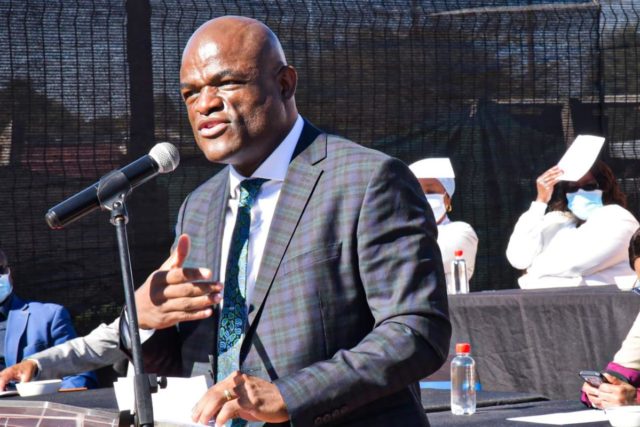COVID-19 testing is not for everyone. This is according to the Premier of the Northern Cape, Dr Zamani Saul, who said at a media conference on Wednesday that those tested for the virus needed to show symptoms or be referred by a doctor for testing.
“Some people are concerned that the figures in the Northern Cape are low because we are not testing. Over the past week, most of the laboratories have complained of unnecessary testing,” said Saul.
The number of positive cases in the Northern Cape rose to 888 on Tuesday evening, with six deaths recorded.
Saul stated that there was no way that the Province could embrace any form of malice to hide figures regarding the virus. “If we did not give a true reflection of the figures, we would have seen a massive increase in the number of fatalities.”
He added further that the Province had invested R396 million to strengthen its medical capacity in response to the outbreak of Covid-19.
“This is to ensure that there are enough ventilators and ICU beds so that by the time of the peak, which is expected to be towards the end of next month and the beginning of September, we will be able to cope.”
According to the acting HOD of Health, Dr Deon Theys, the Province needs to ramp up the number of state quarantine and isolation beds to 3 000.
Currently there are 1 878 general and high-care beds and 49 ICU beds available. The additional bed stock being prepared is 1 257 general and high-care beds and 55 ICU beds.
Theys pointed out that the Province had received a commitment from the national office for additional ventilators as well as promises from donors, especially the United States, for 50 ventilators.
“One can never have enough ventilators,” he stated, but pointed out that the traditional method of ventilating Covid-19 patients had changed.
“It has now been proven to be more effective to allow nasal delivery of oxygen so some of the ventilators will have to be modified.”
Saul, meanwhile, stated that while the provincial command council was happy with the number of infections in the Province currently, which was around 0.4% of the total number of cases in the country, it was expected that infections would increase significantly over the next few weeks.
“The statistical projection is that by the end of August we might peak and by then the number of cases would have increased significantly.”
He added that there was a need to find a balance between saving lives and saving the economy of the Province.
According to Saul, the provincial government was working on a post-Covid economic recovery plan.
He added that the heart of the plan was 16 major infrastructure projects, which had been identified and were part of the Presidential Infrastructure Pipeline.
“If we can get these projects up and running it will change the face and economic landscape of the Province.”
He added that the total cost of the projects was around R400 million. We are engaged with the President’s office for funding but there will be multi-streamed funding. Some of them will be funded commercially, some of them by the fiscus and others will be hybrid.”
“In the main, mining, agriculture and tourism are our biggest economic sectors, with most people working in these sectors. The provincial government is looking at a possible response to strengthen the mining and agricultural sectors but also at resuscitating life into the tourism industry. An announcement on the details of the plan and consultations with the stakeholders can be expected soon.”








